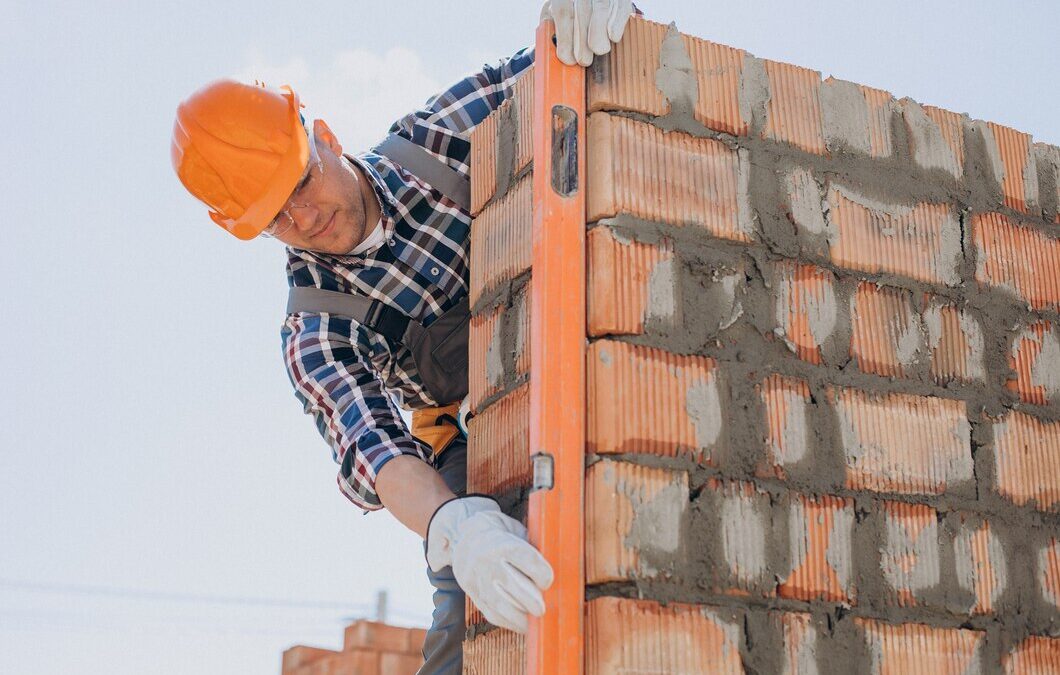Your home’s foundation is its backbone, supporting everything from walls to roof. Keeping it healthy is essential for the safety and stability of your house. By understanding the common problems and how to prevent them, you can avoid costly repairs and ensure your home remains solid for years.
Identifying foundation issues early is crucial. Cracks in walls, uneven floors, and doors that won’t close properly can all be signs that your foundation needs attention. Catch these problems before they worsen to save time and money.
Water is both a friend and foe to foundations. Proper drainage is key to preventing erosion and water damage. With some simple steps, homeowners can direct water away from their house and protect the foundation from excess moisture.
Maintaining a healthy moisture balance in the soil around your home is another important factor. Consistent soil conditions prevent it from expanding and contracting, which helps keep your foundation stable. Regular care and attention are the best defenses against unexpected foundation problems.
Recognizing Foundation Problems Early
Spotting foundation issues early can save a lot of trouble down the road. There are several telltale signs to watch for that indicate your foundation might be in trouble. Common indicators include cracks in the walls or floors, which can start small but grow over time.
Doors and windows that stick or don’t latch properly may also suggest a shifting foundation. If your floors are uneven or you see gaps where walls meet the ceiling or floor, it’s time to take a closer look.
Several factors can contribute to foundation damage. Soil movement is a major cause, often due to changes in moisture levels. Heavy rains can saturate the soil, while dry periods let it shrink and pull away, destabilizing the foundation.
Poor drainage is another culprit, as excessive water around the foundation can lead to erosion or pressure against the walls. Additionally, large tree roots growing near your house might push against or draw moisture away from the foundation.
Timely inspections play a critical role in maintaining a healthy foundation. Regular checks allow you to catch issues before they escalate. It’s important to schedule periodic professional evaluations, especially if you notice any problematic signs. Early detection and repair can prevent minor problems from becoming major, costly repairs.
Effective Water Management
Water management is crucial for protecting your foundation. Without proper drainage, water can cause significant damage. When water collects around the foundation, it can lead to erosion, weaken the structure, and create pressure against basement walls. Over time, this can result in cracks and leaks.
To safeguard your foundation, follow these tips for directing water away from your home:
- Gutters and Downspouts: Make sure gutters are clean, and downspouts extend at least three feet from the foundation.
- Grading: Ensure the ground around your home slopes away, directing water away from the foundation.
- French Drains: Consider installing French drains to help divert water away more efficiently.
For homes in rain or flood-prone areas, additional preventive measures are necessary. Installing sump pumps in basements can help manage excess water during heavy rains. Be sure to maintain your sump pump regularly to ensure it functions when needed. Furthermore, ensure window wells have covers to prevent water from pooling and seeping into basements.
Taking proactive steps to manage water effectively protects your foundation from unnecessary stress and damage. With a few adjustments and preventive measures, you can keep water woes at bay and maintain a solid foundation for years to come.
Balancing Soil Moisture Levels
Keeping the soil around your home’s foundation stable is key to avoiding damage. Soil naturally expands when wet and contracts when dry, which can push or pull on your foundation. Over time, this movement can cause cracks and weaken the structure. Understanding how to manage soil moisture is crucial in maintaining a strong foundation.
Methods for keeping soil moisture consistent are simple yet effective. First, you might consider installing soaker hoses around the foundation to keep the soil evenly moist during dry spells. Set the soaker hoses on a timer to water regularly without over-saturating the ground. This practice ensures that the soil does not shrink excessively.
Landscaping plays a vital role in soil health and moisture balance. Planting shrubs and trees at a safe distance from your foundation can provide shade and reduce evaporation rates.
Additionally, using mulch around plants helps retain soil moisture and prevents rapid drying. It’s essential to choose the right plants for your area and soil type to avoid excessive root growth that could impact the foundation.
By maintaining consistent soil moisture levels, you can prevent the stress of expansion and contraction on your foundation, keeping it solid and secure.
Regular Maintenance Practices
Routine care for your foundation can prolong its life significantly. Regular checks allow you to catch small issues before they become serious, expensive problems. Monthly visual inspections should include checking for new cracks or signs of unevenness. Make sure doors and windows open and close smoothly, as sticking can indicate foundation shifts.
Some simple repairs can be tackled independently, saving time and money. Minor cracks in your foundation can be filled with sealant available from most home improvement stores. Ensure you follow the instructions and keep the area clean during the application. Also, keeping gutters and downspouts clear helps protect the foundation from excess water exposure.
Knowing when to seek professional help is also important. If you notice large or growing cracks, significant unevenness, or persistent water problems, it’s time to call in experts. Professionals can assess the situation and recommend appropriate, long-term solutions, ensuring your foundation remains sturdy.
Conclusion
Maintaining a healthy foundation requires diligence and a proactive approach. Recognizing signs of trouble early and managing water effectively protect your home from significant damage. Consistent soil moisture and regular inspections further support the stability of your foundation. By practicing these strategies, you’ll ensure your home remains safe and sound.
At Lift-Texas Construction, we understand the importance of a strong foundation for your home. If you’re concerned about your foundation or need expert advice, our skilled team is here to help.
With our experience and dedication, we provide the best foundation repair services tailored to your specific needs. Reach out to us today and let us lift your foundation concerns, ensuring peace of mind for the years ahead!

